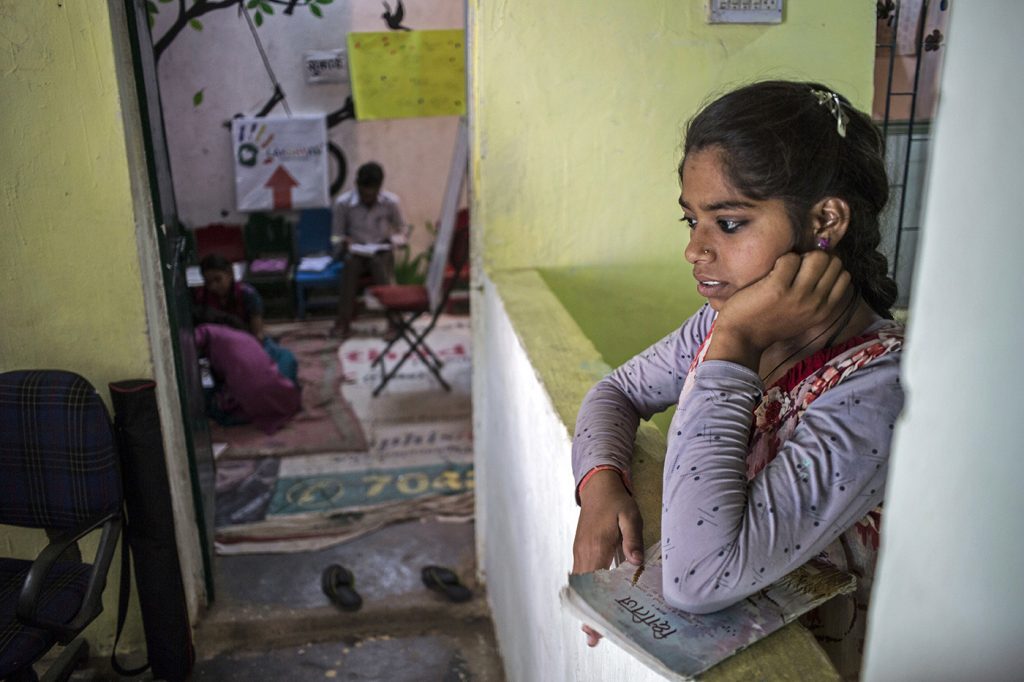Konstantinos Pagratis reflects on how education can support the global struggle to end poverty

Last week, the world marked the International Day for the Eradication of Poverty, an opportunity to reaffirm its commitment to Sustainable Development Goal (SDG) 1 – to end poverty in all its forms everywhere – and to highlight the complex, multidimensional nature of the challenges we face in achieving it.
Education is not a silver bullet when it comes to ending poverty, but it has a crucial role to play, both in securing SDG 1 and in fulfilling the commitment made by Member States in signing up to the 2030 Agenda for Sustainable Development: to leave no one behind.
UNESCO believes that the fight against poverty demands the strengthening of individuals’ capacities through education, which represents a source not only of employment but also of pride, dignity and agency. As Audrey Azoulay, the Director General of UNESCO, observes, ‘for each year a girl spends in the classroom, her future income will increase by 10 to 20 per cent’.
Empowering children, and girls in particular, is crucially important. However, as the theme of the 2019 day acknowledged, we must also seek to empower families and communities through education, enabling parents to better support their own children through school and in non-formal educational settings, and communities to demand and embody the sorts of changes they want to see, for themselves and for future generations.
But how do we ensure that learning is accessible to all and how, in particular, do we establish, promote and maintain community-based learning spaces and opportunities for everyone, young and old?
Addressing poverty at the local, national and international levels requires mobilizing resources and coordinating actions. UNESCO, as the United Nations’ specialized agency for education, is assigned to lead and coordinate the Education 2030 Agenda, which is part of a global movement to reduce poverty through 17 Sustainable Development Goals and, in particular, through SDG 1 by 2030.
One of the most prominent examples of the use of learning in reducing poverty comes from Afghanistan, a country with one of the lowest literacy rates in the world, where UNESCO, together with national authorities, is currently working on the implementation of both basic general literacy and skills-based literacy classes. These activities, part of the Enhancement of Literacy in Afghanistan (ELA) programme supported by the governments of Finland, Japan and Sweden, promote literacy by including basic vocational skills in education, thus targeting both economic growth and literacy, and giving learners the resources they need to lift themselves out of poverty.
The ELA programme began in 2008 and will continue until 2022. It is already having a significant impact on the everyday lives of the people in the country. The programme has helped to empower women not only by improving their literacy skills but also by enabling them to engage in viable income-generating activities, which, in turn, help them to contribute to their families’ livelihoods.
The UNESCO Institute for Lifelong Learning recently organized the fourth International Conference on Learning Cities in the city of Medellín, Colombia. During the conference, experts in education and city representatives from around the world shared innovative ways to revitalize learning in communities and in particular for marginalized segments of society. The conference gave the participants the opportunity not only to share their experiences in the implementation of local actions that support inclusion through lifelong learning, but also to highlight the mechanisms put in place to monitor the progress made in their local inclusion strategies.
The strategies highlighted in the conference demonstrate the great variety of potential approaches to ending poverty being taken up at a local level. They also reflect the central role cities increasingly give to lifelong learning in responding to these problems.
Konstantinos Pagratis is an Assistant Programme Specialist at UIL
